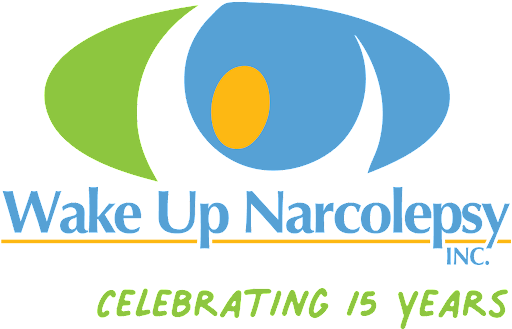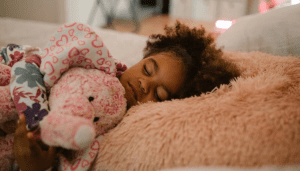Mar 10 2023
Pediatric Narcolepsy – Expert Insight
h in Blogs
By Tana Bao MSN, NP, RN
Narcolepsy is a complex sleep disorder that is difficult to characterize and explain. In children, this can be even more challenging due to the growth and development patterns that are unique to kids.
For this blog, we had the pleasure of interviewing Dr. David Ingram and Dr. Kevin Smith, both of whom are affiliated with Children’s Mercy Sleep Clinic in Kansas City, MO, to demystify narcolepsy in children.
Dr. Ingram is a sleep medicine physician and Dr. Smith is a sleep psychologist that focuses on behavioral sleep health. Additionally, Dr. Ingram recently joined Wake Up Narcolepsy’s Medical Advisory Board.
Narcolepsy Explained By The Experts
According to Dr. Ingram, “narcolepsy is a disorder where our dreams get intermixed with our daytime wakefulness.” He further describes:
“When functioning properly, our sleep and wake states have very clear boundaries, but in individuals with narcolepsy, these boundaries get blurred and they can start to experience things during wakefulness that usually only happen during dream (REM) sleep, such as sleep paralysis, hallucinations, and cataplexy.”
The reverse is also true, meaning that at nighttime, wakefulness can intrude into sleep. Consequently, rather than having a well consolidated sleep period at night, individuals with narcolepsy have very fragmented sleep. So, despite being excessively sleepy, people with narcolepsy get very little restful sleep which many people don’t realize.
Pediatric Narcolepsy Considerations
Children with narcolepsy have additional challenges beyond just feeling sleepy. These can include challenges with mood, school, driving, nutrition, and relationships. A holistic approach to care that helps children and their families navigate these various aspects of growing up is often beneficial for all involved.
Dr. Smith, as the behavioral sleep specialist, counsels children and their families on the behavioral challenges that can be quite prominent in children with narcolepsy such as bedtime resistance, nighttime fears, nightmares, and insomnia. He finds a lot of enjoyment and gratification in seeing how treatment for these issues can really improve mood, functioning, and family health and relationships (just to name a few).
Further, tailoring treatment to each individual child is incredibly important given the variation in age and development among their patients, according to both Dr. Ingram and Dr. Smith. This means that beyond medication, they are talking to patients about nutrition, sleep schedule optimization, and social support appropriate for each patient’s development level.
They also encourage their patients and families to take advantage of the resources that organizations like Wake Up Narcolepsy provide as there is a lot of value in connecting with others that are going through similar circumstances in life. Further, raising narcolepsy awareness is incredibly important so that everyone involved in a child’s care like teachers and extended family can work together to maximize the quality of life of each child.
Pediatric Narcolepsy: Looking Forward
Dr. Ingram states he is looking forward to seeing advances in the coming years in relation to treating children with narcolepsy. There are many groups that are examining best approaches to multimodal care delivery models, which are care models that involve more than one treatment method at a time like what he and Dr. Smith already provide at their clinic.
He also closely monitors advances in medication therapy and states it will be very interesting to see if medications that have been well tested in adults may be helpful for children.
In addition, Dr. Smith is also confident in telehealth optimization for narcolepsy treatment, as new research has shown that this method of care delivery is a feasible, safe, and convenient treatment approach especially as we have emerged from the COVID-19 pandemic.
If you are interested in getting an appointment with Dr. Smith or Dr. Ingram, you can have your primary care provider place a referral to Children’s Mercy Sleep Clinic.
If you would like to donate to Wake Up Narcolepsy directly or would like more information on how you can get involved, please follow this link.

